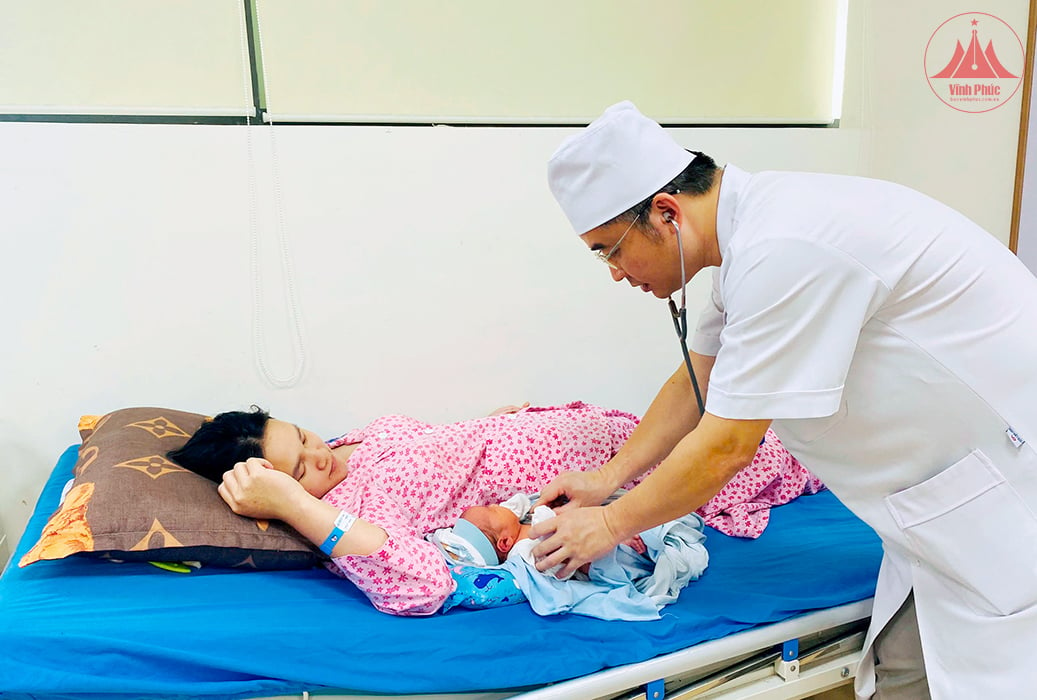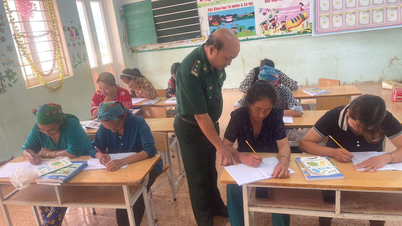In the first 5 months of the year, the provincial health sector has conducted prenatal screening for more than 5,200 pregnant women, of which more than 4,700 cases were screened using specialized testing techniques such as dried blood samples, serum samples, etc.
The tests focus on early detection of fetal abnormalities such as Down syndrome, Edward syndrome, Patau syndrome, Thalassemia and other chromosomal abnormalities. Early detection has helped many high-risk pregnant women receive appropriate diagnosis, counseling and treatment, creating conditions for fetal health care right from the womb.
Newborn screening has also achieved many positive results. In the first 5 months of the year, the whole province had more than 5,100 newborns screened, reaching more than 96% of the total number of live births in the area.
Screening tests focus on detecting 5 common congenital diseases that can be effectively treated if detected early: Congenital hypothyroidism, G6PD deficiency, congenital adrenal hyperplasia, congenital hearing loss and congenital heart disease.
The screening results identified 4 high-risk newborns who were promptly referred for treatment and ensured long-term follow-up. This is a remarkable step forward in the effort to reduce disabilities and intellectual disabilities caused by congenital diseases that are not detected early.
Prenatal and newborn screening is not only implemented at provincial and district health facilities, but also expanded to commune levels. Since the beginning of the year, the provincial health sector has organized 37 training courses for nearly 3,000 full-time health workers and health station heads on counseling skills, heel blood sampling techniques, ultrasound and genetic counseling to enhance the capacity of commune health workers.
At the same time, the provincial health sector also focuses on investing in equipment for district-level medical facilities, contributing to expanding the scope of screening and ensuring testing quality.
In addition, the pre-marital health examination program - an important pillar of the work of improving population quality - has also achieved many encouraging results. In the first 5 months of the year, the provincial health sector organized pre-marital health examination and consultation for more than 1,400 young couples, accounting for more than 90% of the couples registering for marriage.
Thereby, early detection of genetic risks and diseases affecting fertility and children's health helps couples prepare better physically and mentally when entering married life.
Despite many positive results, the work of screening, diagnosing and treating prenatal and neonatal diseases still faces many difficulties such as limited funding; some people, especially in remote areas, are not really interested or do not have access to high-quality medical services.
Notably, awareness of the role of population work in the new situation is still uneven among government levels and some people, and there is still a male-dominated ideology, affecting the effectiveness of population policy implementation.
To promote prenatal and newborn screening, the provincial health sector proposed that the Central Government and the Ministry of Health continue to pay attention and increase resources for localities in implementing screening activities and supporting free testing for vulnerable groups; at the same time, promote propaganda andeducation to raise public awareness.
In particular, it is necessary to soon promulgate the Population Law to create a legal corridor, helping localities synchronously implement population policies and reproductive health care, contributing to improving the quality of the province's population and human resources in the future.
Minh Nguyet
Source: http://baovinhphuc.com.vn/Multimedia/Images/Id/129822/Chia-khoa-nang-cao-chat-luong-dan-so





































































































Comment (0)